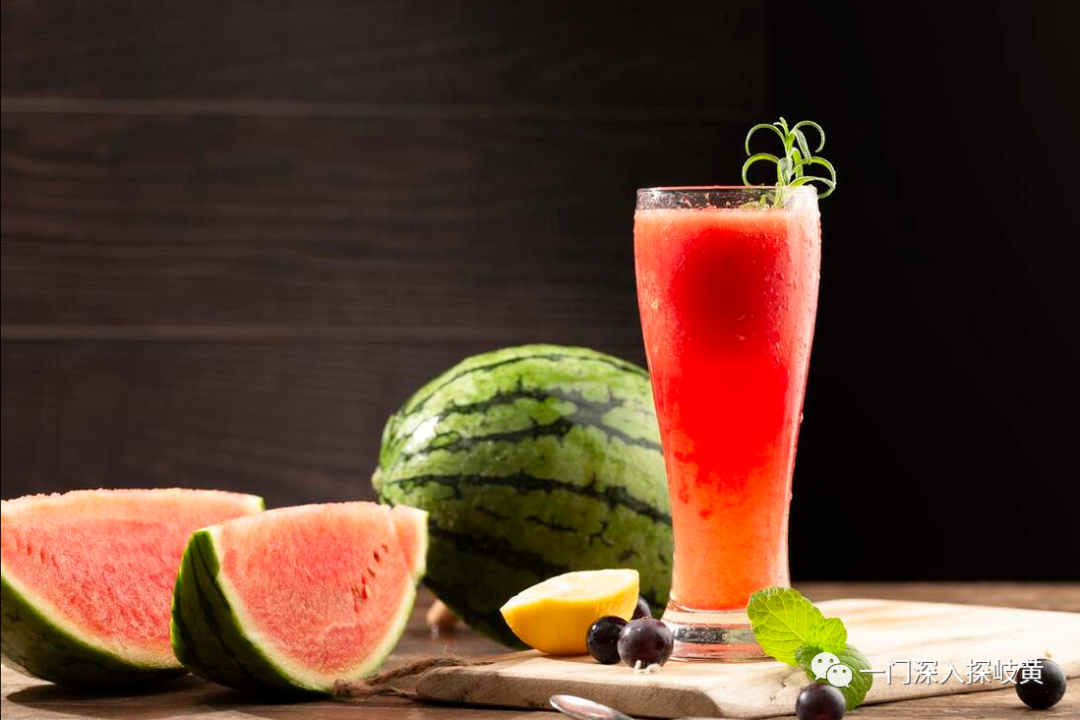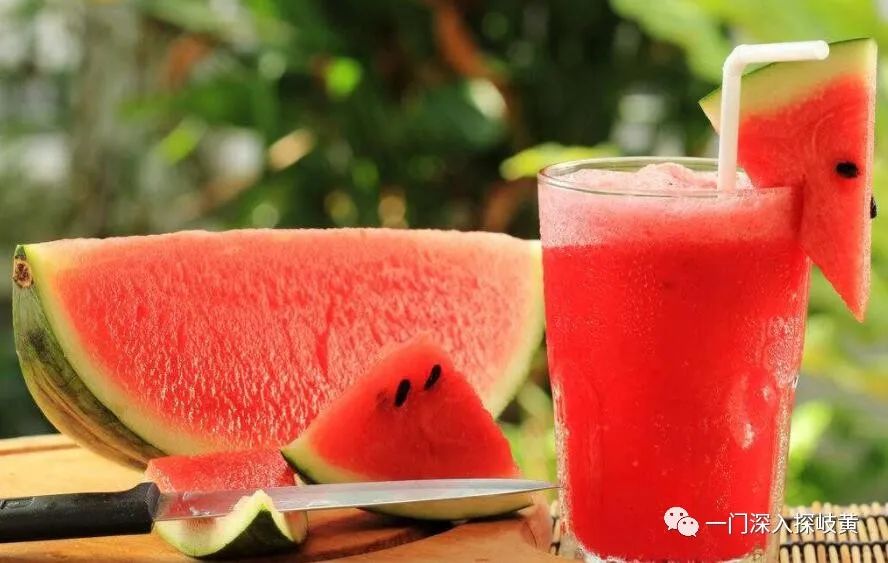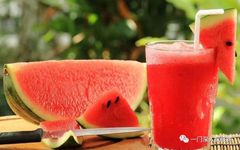

 【One】 Recently, the temperature has significantly increased, and various cold items such as ice cream, iced drinks, and beer are often prominently displayed in supermarkets, enticing those who fear the heat. While indulging in these cold foods may provide temporary relief, they quickly enter the warm environment of the piwei (spleen and stomach), causing a drastic drop in temperature and severely depleting the yang qi (yang energy) of the spleen and stomach. Over time, this can lead to piwei xu han (spleen and stomach yang deficiency). Symptoms of spleen and stomach yang deficiency may include: a cool sensation or pain in the epigastric area, with pain that is dull and relieved by warmth, worsened by cold, reduced pain after eating; frequent vomiting or diarrhea with a lack of desire to drink; reduced appetite; loose stools; diarrhea; cold limbs; or a pale, sallow complexion with a pale tongue that has teeth marks, thin white coating, and a deep, thin, slow pulse. Furthermore, spleen and stomach yang deficiency can further impair the body’s immunity, significantly reducing the ability to resist wind-cold and wind-heat. Many people, even in the hot summer, frequently catch colds due to internal cold and external pathogens. Children may present with fever, tonsillitis, or abscesses; women may experience dysmenorrhea or menstrual irregularities, often feeling cold in the lower abdomen and having cold hands and feet. I have observed that those with spleen and stomach yang deficiency often feel a cool sensation in their stomach and find comfort in consuming warm foods or soups. They subconsciously fear cold items, such as cold drinks, cooling fruits, and air conditioning. If they indulge in cold foods due to cravings, they are likely to experience abdominal pain and diarrhea, regretting it afterward. In summary, cold foods will inevitably harm the spleen and stomach, especially in summer when external heat and internal cold make the spleen and stomach more vulnerable. I truly admire the wisdom of our ancestors, who emphasized “eating radishes in winter and ginger in summer”, reminding us how to eat correctly to prevent illness! To illustrate, our spleen and stomach are located in the body’s zhong jiao (middle burner), akin to the earth of the body, where damp and cold soil is difficult for roots to take hold. Consuming ice cream and drinking cold beer will make the soil increasingly damp and cold, weakening the function of the spleen and stomach, leading to a decrease in the energy converted by the body! The spleen and stomach are the source of all things; once they decline, the consequences are severe, as “all diseases arise from the decline of the spleen and stomach”!
【One】 Recently, the temperature has significantly increased, and various cold items such as ice cream, iced drinks, and beer are often prominently displayed in supermarkets, enticing those who fear the heat. While indulging in these cold foods may provide temporary relief, they quickly enter the warm environment of the piwei (spleen and stomach), causing a drastic drop in temperature and severely depleting the yang qi (yang energy) of the spleen and stomach. Over time, this can lead to piwei xu han (spleen and stomach yang deficiency). Symptoms of spleen and stomach yang deficiency may include: a cool sensation or pain in the epigastric area, with pain that is dull and relieved by warmth, worsened by cold, reduced pain after eating; frequent vomiting or diarrhea with a lack of desire to drink; reduced appetite; loose stools; diarrhea; cold limbs; or a pale, sallow complexion with a pale tongue that has teeth marks, thin white coating, and a deep, thin, slow pulse. Furthermore, spleen and stomach yang deficiency can further impair the body’s immunity, significantly reducing the ability to resist wind-cold and wind-heat. Many people, even in the hot summer, frequently catch colds due to internal cold and external pathogens. Children may present with fever, tonsillitis, or abscesses; women may experience dysmenorrhea or menstrual irregularities, often feeling cold in the lower abdomen and having cold hands and feet. I have observed that those with spleen and stomach yang deficiency often feel a cool sensation in their stomach and find comfort in consuming warm foods or soups. They subconsciously fear cold items, such as cold drinks, cooling fruits, and air conditioning. If they indulge in cold foods due to cravings, they are likely to experience abdominal pain and diarrhea, regretting it afterward. In summary, cold foods will inevitably harm the spleen and stomach, especially in summer when external heat and internal cold make the spleen and stomach more vulnerable. I truly admire the wisdom of our ancestors, who emphasized “eating radishes in winter and ginger in summer”, reminding us how to eat correctly to prevent illness! To illustrate, our spleen and stomach are located in the body’s zhong jiao (middle burner), akin to the earth of the body, where damp and cold soil is difficult for roots to take hold. Consuming ice cream and drinking cold beer will make the soil increasingly damp and cold, weakening the function of the spleen and stomach, leading to a decrease in the energy converted by the body! The spleen and stomach are the source of all things; once they decline, the consequences are severe, as “all diseases arise from the decline of the spleen and stomach”! 
【Two】 Nowadays, cases of spleen and stomach yang deficiency are very common. I have noticed that these individuals often have a preference for strong-flavored foods, such as spicy and salty dishes, including mala tang (spicy hot pot) and mala huo guo (spicy hot pot), as well as turkey noodles. Why is this? When the stomach qi is insufficient or the spleen and stomach are yang deficient, one may feel that food lacks flavor or is unappetizing, leading them to gradually prefer stronger flavors, drink strong tea, coffee, and consume spicy foods to stimulate the already deficient spleen and stomach. Additionally, I believe that we can explain spleen and stomach yang deficiency from both physiological and pathological perspectives! Physiologically, the spleen and stomach are the foundation of postnatal life and the source of qi and blood. The stomach descends the turbid, while the spleen ascends the clear, serving as the pivot for the body’s qi movement. If harmed by cold pathogens or overeating, it can easily damage the physiological functions of the spleen and stomach. Pathologically, modern individuals, especially the young, tend to enjoy cold drinks, and cold pathogens easily harm the spleen and stomach, leading to yang deficiency. If one has a pre-existing weakness in the spleen and stomach or indulges in rich, cold foods, it can damage the spleen and stomach, leading to a blockage in the qi movement of the middle burner, resulting in symptoms such as fullness and distension associated with spleen and stomach yang deficiency. As stated in the Pi Wei Lun (Treatise on the Spleen and Stomach): “Those with long-standing deficiency of the spleen and stomach will easily experience distension and fullness in the stomach due to cold.” So how can we simply determine if one has spleen and stomach yang deficiency? The simplest method is to observe whether one experiences stomach pain or abdominal distension when the weather turns cold or after consuming cold foods, and whether symptoms improve with warmth or massage. When summer arrives, many people find their appetite decreases significantly; this is a warning sign that may indicate spleen and stomach yang deficiency! For patients with spleen and stomach yang deficiency, the first step in treatment is to “avoid cold foods”, strictly avoiding raw and cold fruits, shellfish, cold vegetables, and dairy products; and absolutely avoiding cold foods in summer. In daily diet, one can regulate by drinking ginger tea with brown sugar or taking Fu Zi Li Zhong Wan (Aconite and Ginseng Pill). Each morning on an empty stomach, boil four to five slices of ginger with a spoonful of brown sugar to make ginger tea, which can warm the spleen and stomach. Additionally, based on dietary adjustments, those with spleen and stomach yang deficiency can choose to engage in activities such as running, brisk walking, or strolling to “move and generate yang”, effectively improving the state of coldness in the stomach and intestines.


